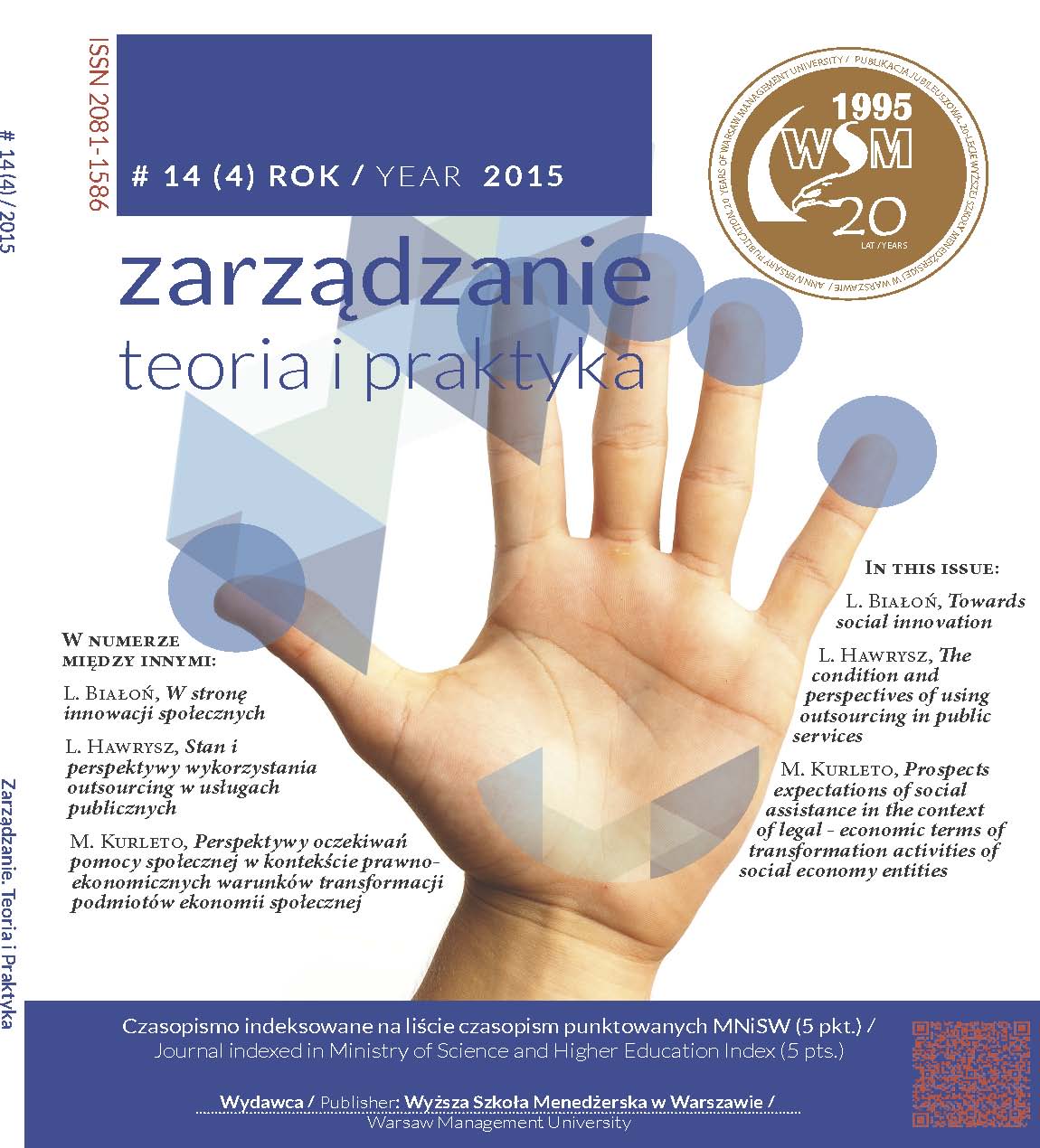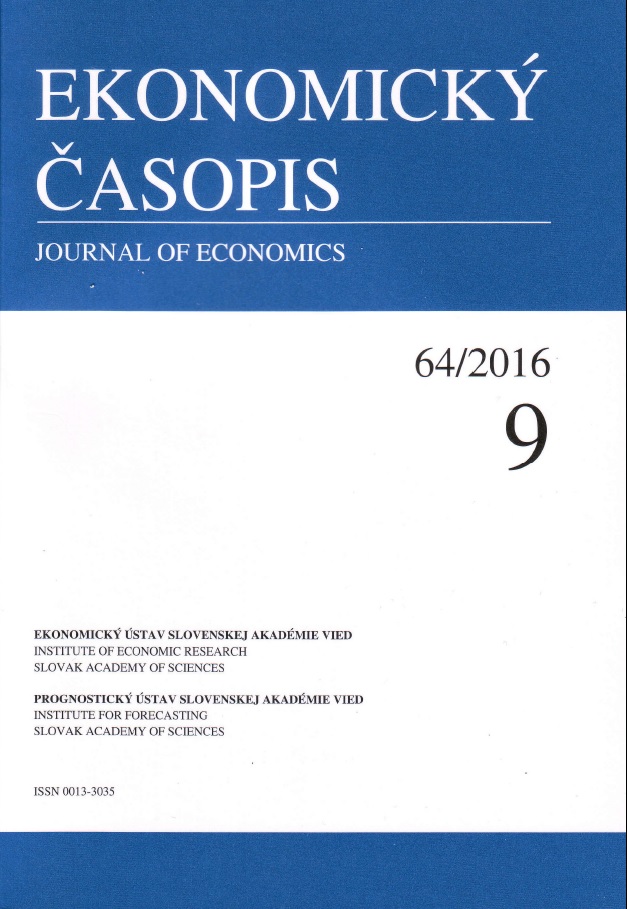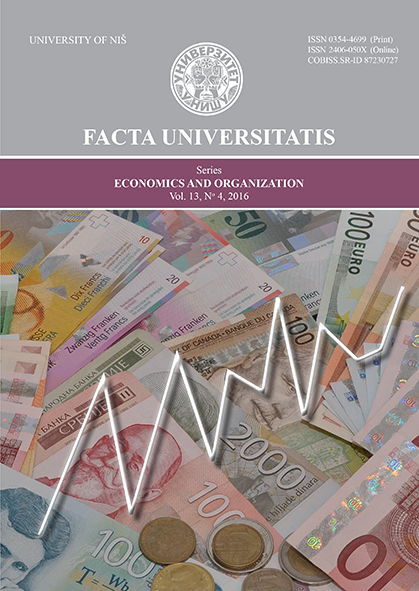Author(s): Liliana Hawrysz / Language(s): Polish
Issue: 4/2015
In Poland, the public sector is an important segment of the national economy. It consists of approximately 67 thousand entities, which spend budgetary funds or decide how to spend them. In the present state of organisation of public sector entities, the same functions are repeated in the same locations but they are organized and operate in a different way. As a result, the sector cannot take advantage of returns of scale, or apply best practice and its costs are higher than costs of private entities (Shared Services in Public Sector, 2014). Therefore, outsourcing or centralization within the Shared Services Center of selected auxiliary functions, among others, payroll, paper supply, maintenance of bills for electricity and telephone, occupational safety and health and security of classified information, could reduce these costs. In addition, Shared Services Centers as an example of insourcing should be considered as a first step towards outsourcing, in which an external supplier based on a long-term contract carries out certain functions. It is a solution, which systemizes organisational processes without introducing drastic changes in the employment struture and organisational culture. Thus, it can be a starting point for further actions, including selective outsourcing, for which public sector organisations are not prepared at the present. The main aim of this article is to determine a degree of outsourcing usage in the public sector in Poland and in developed counties and to define limitations in the use of outsourcing in public services as well as to determine perspectives of using outsourcing in the public sector, with taking into consideration in particular Shared Services Centers. The desk research technique was applied in order to prepare this elaboration.
Currently, polish public sector organisations are not ready to implement the idea of outsourcing. Firstly, due to current legal regulations and moreover due to risk aversion, lack of knowledge or limited knowledge on outsourcing, lack of efficiency goals in public institutions, and difficulties in investing potential savings in the institutional development.
More...










